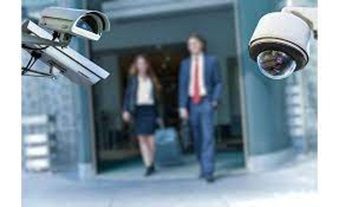Many local authorities in the UK are confused about whether the surveillance equipment they are using is subjected to any security or ethical concerns, according to the biometrics and surveillance camera commissioner.
Professor Fraser Sampson has published a report based on a survey of councils, carried out last year, on their use of overt surveillance cameras in public places. It says the responses have made clear there is little understanding of which suppliers of the equipment the concerns might apply to.
This follows rising concerns about the role of Chinese companies in providing equipment and the implications for national security. Late last year the UK Government told departments not to use any new visual surveillance systems from Chinese firms. There have also been concerns about the possible connection of some manufacturers in the country to modern slavery.
The commissioner’s report includes the finding that, when asked if they have supply chain requirements – including issues such as cyber security, modern slavery and environmental sustainability – 79 responding councils said they did but 64 did not.
It adds that some councils reported concerns while stating they did not know the manufacturer of their cameras, and that cost has usually been more important than any ethical considerations.
“The returns relating to due diligence undertaken during the procurement process suggest that, while modern slavery and national security considerations do feature, there continues to be an emphasis on value for money, which may be to the detriment of security and ethical considerations,” it says.
The report says that, while CCTV is the most widely used type of surveillance camera system, some councils have also deployed body-worn video and cameras mounted on drones. But there were no reports of any use of facial recognition technology.
In addition, only 58 (40%) of respondents reported that they worked in collaboration with the police on deployments of the technology, compared with 73 in the previous survey in 2020. The commissioner says the reasons for this are unclear. In April of last year Sampson flagged up a plan to publish advice on the ethical obligations on the use of surveillance cameras in public spaces.








